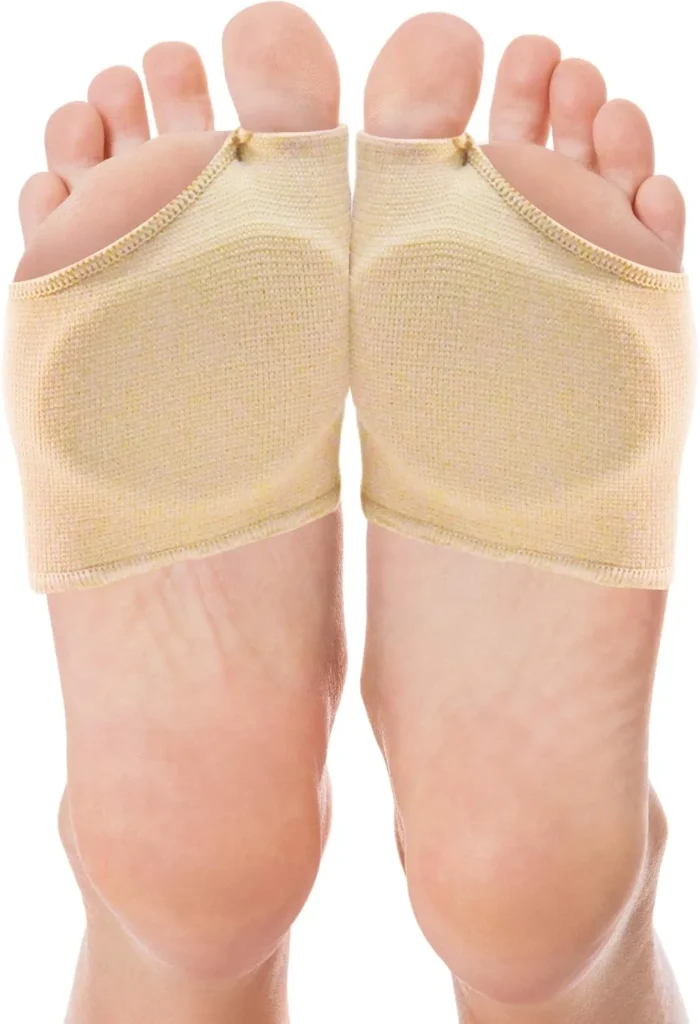Metatarsalgia Treatment in Adelaide
At Keep Me Walking Podiatry, we provide comprehensive treatment for Metatarsalgia to help you manage foot pain and restore mobility. Our clinic offers expert care, including options for Morton’s Metatarsalgia treatment, ensuring personalized solutions to enhance your quality of life. Whether you’re seeking relief through professional therapies or exploring Metatarsalgia treatment at home, we are here to support you every step of the way.
Metatarsalgia: Causes, Symptoms, and Diagnosis
Metatarsalgia is a condition characterized by pain and inflammation in the ball of the foot. It often affects those who engage in high-impact activities, such as running, or wear ill-fitting shoes. For individuals with these issues, options like Morton’s Metatarsalgia treatment or Metatarsalgia treatment for runners can be beneficial. Common causes include overuse, toe deformities, and excessive pressure on the metatarsal bones.
Symptoms of Metatarsalgia include sharp, aching, or burning pain in the ball of the foot, which worsens with physical activity and improves with rest. Swelling and bruising may also occur. It’s essential to recognize these symptoms early to prevent further complications, especially for those in need of chronic Metatarsalgia treatment.
Diagnosing Metatarsalgia typically involves a physical examination, a review of medical history, and imaging tests such as X-rays or MRIs. Proper diagnosis is crucial for developing an effective treatment plan tailored to individual needs. Whether you need Metatarsalgia physiotherapy treatment or chiropractic treatment, we provide solutions suited to your condition.

Why Choose Us for Your Care?
At KMW Podiatry, we provide exceptional podiatry services across Adelaide, ensuring every patient receives personalized, high-quality care.
Health Scheme Support
We support patients under Workcover, EPC, NDIS, DVA, and other government schemes, providing consistent care for everyone.
Latest Technologies
We adopt the latest technologies to offer advanced podiatric care, providing innovative solutions for your foot health.
Convenient Locations
With clinics In stand-alone locations, GP Medical centers and Home Visits, our services are easily accessible, making it convenient for you to receive top-notch care.
24/7 Emergency Help
We are available around the clock for emergency assistance, ensuring you get the help you need whenever you need it.
Treatment Options: Relief and Recovery
Effective treatment for Metatarsalgia focuses on pain relief and addressing the underlying causes. Conservative measures include rest and over-the-counter pain relievers. Proper medical grade footwear with cushioning and arch support is essential to reduce pressure on the metatarsal bones, particularly for those seeking Metatarsalgia treatment at home.
- Metatarsalgia physical therapy treatment and guided exercises to strengthen the foot muscles and improve flexibility
- Custom orthotics for additional support and pain relief
- Metatarsalgia chiropractic treatment for improving alignment and reducing pressure.
-
Corticosteroid injections to reduce inflammation and pain
-
In severe or persistent cases, Metatarsalgia surgical treatment may be necessary to correct structural problems.
Physical therapy exercises, often part of Metatarsalgia treatment exercises, can significantly enhance recovery by improving mobility and flexibility. For athletes, our team specializes in Metatarsalgia treatment for runners, ensuring a safe return to activity. Early intervention and a comprehensive approach can help individuals return to their daily activities pain-free.

Treatment Options for Metatarsalgia
Treatments are different for every person depending on the patient’s symptoms and needs. Some treatment strategies may include:
If you are experiencing pain in the ball of your foot or have any other foot or ankle concerns, we encourage you to contact Keep Me Walking Podiatry at 1800962113 to schedule an appointment. Our team offers solutions ranging from foot pain Metatarsalgia treatment to advanced therapies, helping you achieve relief and better foot health.
FAQ's for Metatarsalgia Treatment
What is Metatarsalgia, and what causes it?
Metatarsalgia is pain and inflammation in the ball of the foot, often caused by overuse, high-impact activities, foot deformities, or wearing poorly fitting shoes. It results from excessive pressure on the metatarsal bones.
What are the common symptoms of Metatarsalgia?
Common symptoms include sharp, aching, or burning pain in the ball of the foot, which worsens with physical activity and improves with rest. Swelling and bruising may also occur.
How is Metatarsalgia diagnosed?
Diagnosis involves a physical examination, medical history review, and imaging tests like X-rays or MRIs to assess the condition and determine the best treatment plan.
What are the conservative treatment options for Metatarsalgia?
Conservative treatments include rest, ice application, over-the-counter pain relievers, proper footwear with cushioning, custom orthotics, and physical therapy exercises such as Metatarsalgia treatment exercises to strengthen foot muscles.
When is surgery considered for Metatarsalgia?
Surgery is considered for severe or persistent cases of Metatarsalgia that do not respond to conservative treatments. It aims to correct structural problems and alleviate pain.
